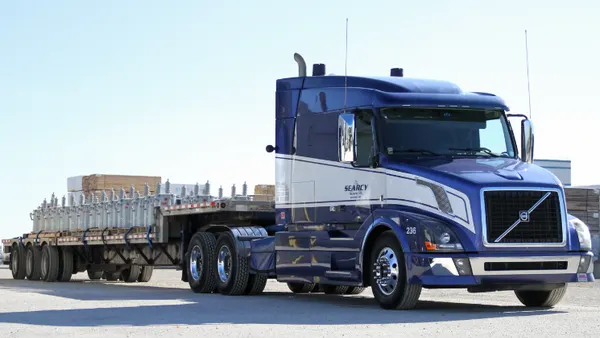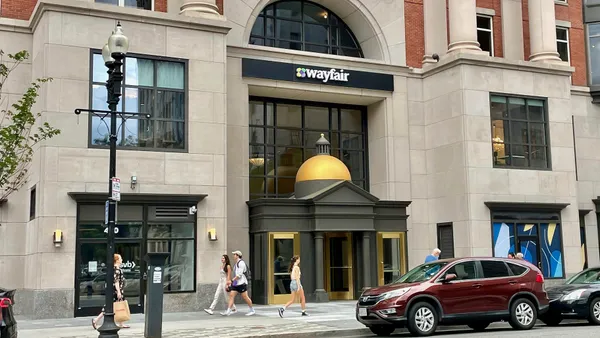Dive Brief:
- J.B. Hunt Transport Services reported plunging Q2 revenues, with executives blaming an 18% YoY drop on a persistently weak freight market during an earnings call Tuesday. The company reported revenues of $3.13 billion, down from $3.84 billion a year ago.
- The carrier reported YoY volume declines across all segments. J.B. Hunt logged a 7% drop in intermodal while its integrated capacity solutions business fell 26%.
- Company President Shelley Simpson said Q2 marked the second consecutive quarter that the trucking industry was dealing with a freight recession. And based on current economic conditions, a normal freight peak in the second half of the year appears unlikely, said EVP and President of Highway Services Brad Hicks.
Dive Insight:
J.B. Hunt plans to ride out the freight slowdown, seeking to remain ready to serve when demand returns.
EVP, COO and President of Contract Services Nick Hobbs said shippers still require service, but all are seeking competitive pricing.
“I can’t answer when the economy is going to turn around or when demand will pick back up, but if things continue to remain slow, [shippers] will continue to put pressure [on us],” he said during the call. Hobbs is confident the company’s processes are designed to help customers reduce their costs through redesigning routes and fleet optimization.
J.B. Hunt’s efforts to help customers find savings are helping its bottom line. The carrier’s Q2 operating income for its final mile services segment was $14.8 million, a YoY increase of 12%, while operating income for dedicated contract services was $113.6 million, a 21% YoY increase, both indicators the company is keeping expenses in check in those areas.
Even in a down freight market, J.B. Hunt remains committed to investing in technology, including improvements to its Shipper 360 platform, to drive efficiencies. Simpson said investing in technology is a long-term commitment, which improves productivity and helps the company deliver value to customers.
“While the environment remains uncertain and demand for capacity is still muted, we remain focused on how we grow our customers,” she told analysts. “And we will continue to remain disciplined in our approach. We will do this by prudently managing our business in the tear term, focusing on our controllable costs.”












